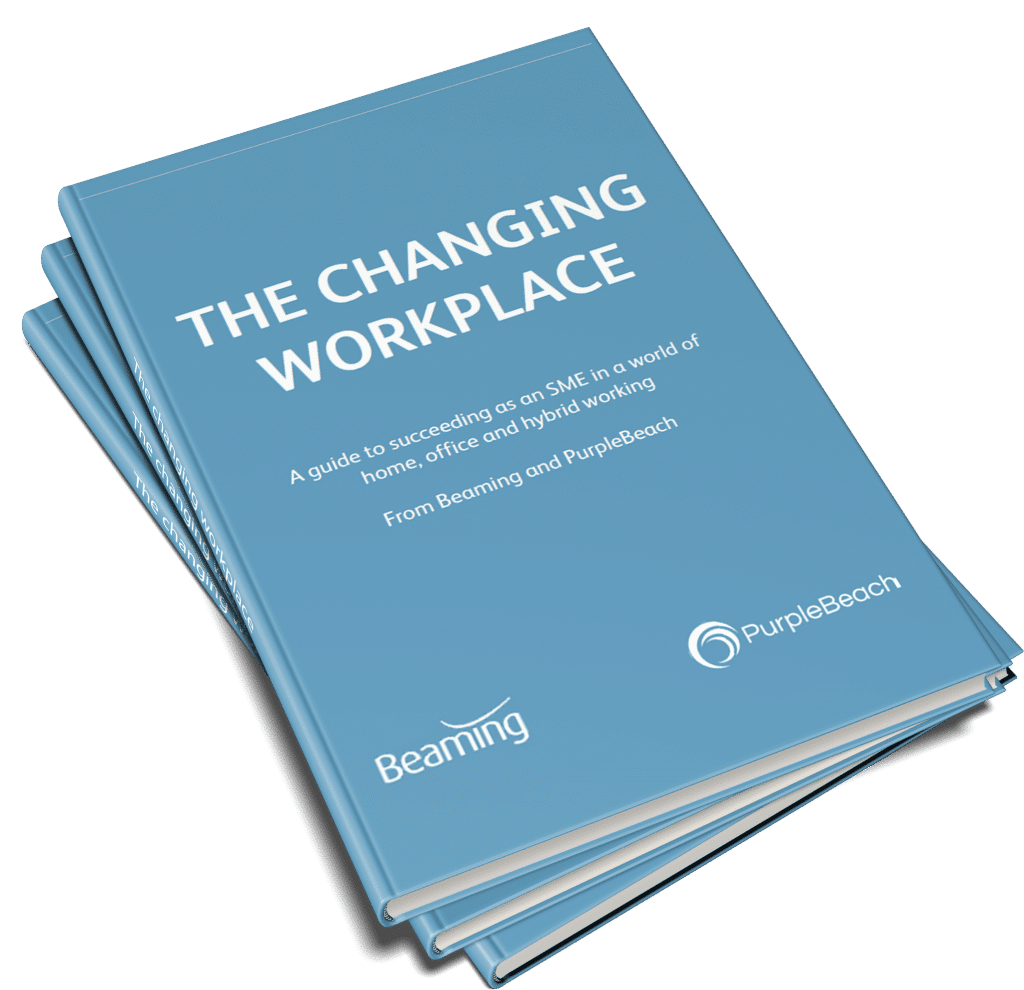Supporting employees in uncertainty
As part of our Changing Workplace Report research, and with businesses still facing many uncertainties, we asked Andrea Derler, Director of Industry Research at the NeuroLeadership Institute to share some guidance on how employers can support employees in uncertain times.
In May, during the first peak of the COVID crisis in Europe and the US, the NeuroLeadership Institute set out to understand more about how it was affecting people psychologically.
While around half of the people we spoke to reported that their anxiety levels were increasing week on week, affecting their ability to focus on work, our research uncovered significant differences in anxiety depending on how COVID affected people personally.
People with childcare issues, confronted suddenly with the need to combine home-schooling and home-working under the same roof, were among the most anxious at the time of our study.
High levels of anxiety were also experienced by people directly affected by COVID, those who had contracted the virus or had family members and close friends that were unwell, as well as people impacted by reduced workforces and furloughing.
Providing certainty in an uncertain world
One of the reasons that people become anxious is that they are uncertain about the future. Leaders can’t provide that certainty because nobody can predict when the pandemic will be over.
But we know from our research that people tend to have a higher degree of confidence in their organisation if they felt that there were clear rules and order at work.
Leaders can inspire greater certainty amongst a workforce by being clear about what the organisation is going to do and precisely what they expect of colleagues. It is incredibly helpful for leaders to make themselves available to answer employees’ questions about company decisions.
Building a sense of team and belonging
Our study showed that people had lower anxiety levels if they felt part of a team, but it is harder for people to feel that way when isolated from colleagues at home.
This isolation also feeds our distance bias, our human tendency to favour people closer to us in time and space. Unchecked, distance bias impacts negatively on our perceptions of colleagues in other locations, they become less important and we feel less positively about their performance.
Leaders need to make an effort to intentionally connect with their people and create new opportunities for them to engage with colleagues to encourage that sense of teamwork and belonging. Encouraging a greater level of connection between colleagues will grow in importance the longer we have to work apart – for productivity and also for learning from each other.
Driving perceptions of fair play
Fairness is another factor affecting confidence. People with more confidence in their organisation felt as though they received frequent and reasonable explanations about the decisions made.
Lack of transparency around business decisions was the most significant gap we identified in our research. Leaders frequently think they communicate transparently on issues, but it is not often perceived that way by the rest of the organisation.
Leaders need to be open and transparent about decision-making processes. Rather than cascading information from the top, hoping it trickles down to everyone through layers of management, share it with the entire organisation at the same time instead.
Developing a growth mindset
We are experiencing massive change as a result of COVID, and this change is intertwined with other big societal shifts such as digitalisation and the growth of AI. However we feel about the prospects of a ‘new normal’, the world will certainly not be getting back to ‘normal’ as things were before.
Leaders must help their people to see this period of change as a learning opportunity, not a threat.
I’m talking here about developing a growth mindset, the belief that our skills and traits – and those of our colleagues – can grow and get better. We need cultures that consider everyone in an organisation to be capable of growth, not just the “top 10%” of people.
Leaders play a critical role here, both in embracing change and becoming role models for learning. They must be open to experimentation, including being at peace with, and learning from failure, and – instead of always trying to be the expert in the room – willing to learn together, actively seeking knowledge from their teams.
Developing a business culture that embraces change and equips colleagues for new and different ways of working requires systematic change. Great planning and communication are important, but they are only part of the answer.
We need to pinpoint what we care about, identify the behaviour that is required to achieve that priority, and put systems in place that make it easy for people to behave in that way. That could be a prompt in virtual meetings to ensure that everyone on the call is individually invited to contribute their views to a problem – to help overcome distance bias – or creating new opportunities for even the most junior team members to educate their colleagues around new ways of working.
Understanding the impact of lockdown on employees
How lockdown has affected employees, by a University of Kent Sociologist.
